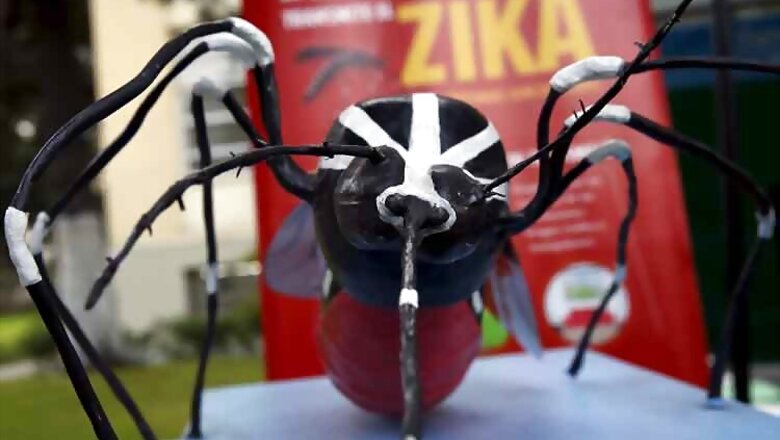
views
Washington: The mosquito behind the Zika virus seems to operate like a heat-driven missile of disease. The hotter it gets, the better the mosquito that carries Zika virus is at transmitting its buffet of dangerous illnesses, scientists say.
Although it is too early to say for this outbreak, past outbreaks of similar diseases involved more than just biology.
In the past, weather has played a key role, as have economics, human travel, air conditioning and mosquito control. Even El Nino sneaks into the game. Scientists say you can't just blame one thing for an outbreak and caution it is too early to link this one to climate change or any single weather event.
As the temperature rises, nearly everything about the biology of the Aedes aegypti mosquito, the one that carries Zika, dengue fever and other diseases, speeds up when it comes to spreading disease, said entomologist Bill Reisen of the University of California Davis.
"With higher temperatures you have more mosquitoes feeding more frequently and having a greater chance of acquiring infection. And then the virus replicates faster because it's hotter, therefore the mosquitoes can transmit earlier in their life," Reisen said. The thermodynamics of mosquitoes are "driven by temperature."
The hotspots for this Zika outbreak also have been temperature and drought hotspots recently. Recife, Brazil, the largest city in the Zika-struck region, saw its hottest September-October-November on record, about 1.2 degrees Celsius (2.2 degrees Fahrenheit) above normal, according to NASA data.
The state of Pernambuco had its hottest and driest year since 1998, according to the state weather agency. And globally, last year was the hottest on record.




















Comments
0 comment